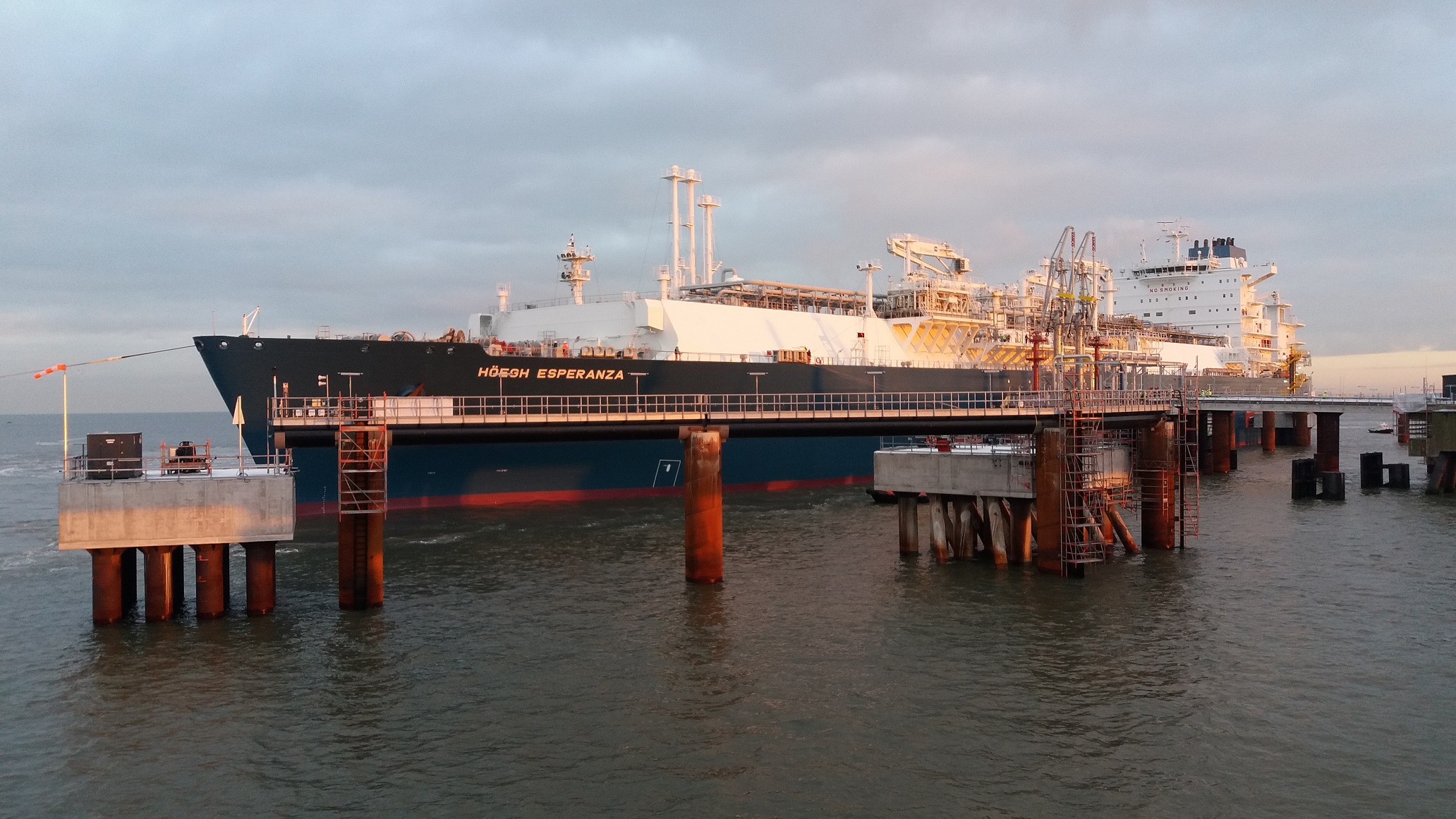Germany’s first FSRU-based import facility in Wilhelmshaven has received 42 liquefied natural gas (LNG) cargoes since its commissioning in December 2022, according to state-owned energy firm Uniper.
The 170,000-cbm FSRU Hoegh Esperanza, owned by Norway’s Hoegh LNG and chartered by the German government, received its first LNG cargo in Wilhelmshaven from the US in early January.
Prior to that, the chartered FSRU arrived in Wilhelmshaven on December 15 with a cargo from Spain’s Sagunto terminal, while Uniper and its partners launched the facility two days later. The vessel started supplying this gas to the German grid on December 21.
Germany’s first LNG terminal at the Hooksiel outer harbor near Wilhelmshaven celebrated its first anniversary on December 17, 2023.
The contract awarded to Uniper by the German government in March 2022, enabling the import of LNG via the terminal in Wilhelmshaven, was completed in record time with a construction period of nine months, Uniper said in a statement.
“Since commissioning on December 21, 2022, the terminal has been running almost without interruption. 42 LNG carriers have so far delivered around 7 million cubic meters of LNG via the FSRU Hoegh Esperanza,” the company said.
This LNG has been converted into around four billion cubic meters of natural gas and fed into the German gas grid.
Six percent of German gas consumption in 2023
According to Uniper, around six percent of German gas consumption in 2023 could thus be covered by the liquefied natural gas imported at this location.
“It is already certain that the capacities of the FSRU will also be fully utilized for 2024,” the firm said.
Uniper’s unit LNG Terminal Wilhelmshaven (LTeW) is responsible for the operational and technical management of the terminal and acts on behalf of the state-owned Deutsche Energy Terminal (DET), which is responsible for the operation and marketing of all LNG terminals built on the German North Sea coast on behalf of the federal government.
In October, DET allocated 60 regasification slots at the Brunsbüttel and Wilhelmshaven 1 sites and is now working to launch the second Wilhelmshaven FSRU and the Stade FSRU.
The Wilhelmshaven 1 terminal has a capacity of 6 bcm per year and the Brunsbüttel terminal has a capacity of 3,5-5 bcm per year.
Besides these four FSRUs, the German government sub-chartered the FSRU Transgas Power to private firm Deutsche Regas to serve the planned LNG import terminal in the port of Mukran.

